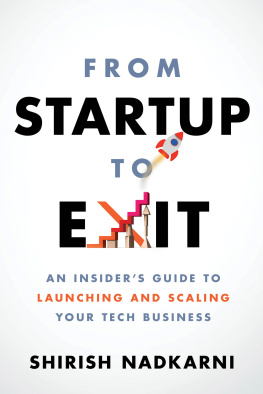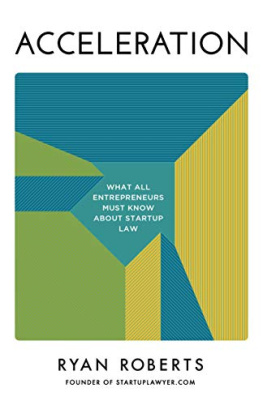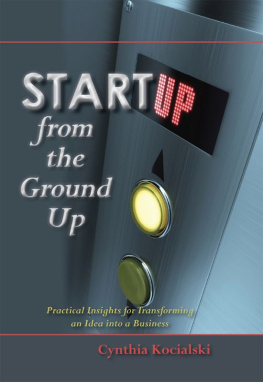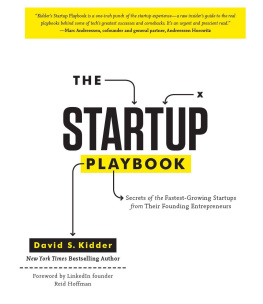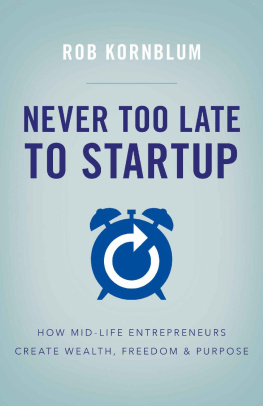Table of Contents


To our parents, and to our alma mater, IIM Ahmedabad
Contents
F IRST THINGS FIRST. I am a firm believer in diversity. However, for the sake of brevity, I have used he to mean both genders in this piece.
Much water has flowed down the Ganges since the late sixties when I joined the Indian Institute of Management Ahmedabad (IIMA) as the chief systems programmer at the new computer centre there. My father, a high school teacher, had fed his children, day after day, the staple diet of Nehruvian Socialism. As youngsters, we had become staunch believers in socialism. For us, our government was the solution to every one of Indias problems. The general belief in India at that time was that poverty was a virtue, and leftism was the fashion in vogue. At the IIMA computer centre, the young socialistic minds had unanimously decided that our first priority outside the office was to coach the computer centre peon to succeed in the written test to become a clerk in the State Bank of India.
IIMA, with its strong umbilical cord to Harvard Business School, was supposed to be a bastion of capitalism in India. In reality, it was not entirely so. Even amongst the deep-thinking minds of the faculty and the impressionable minds of the bright and curious students, there were a few outliers dedicated to socialism. A few of these deep-thinking and top-ranking students from the MBA batch of 1971 joined the Planning Commission! For the rest of the brilliant youngsters swooned over by capitalism, getting a management trainee job at a multinational company like Hindustan Lever or Citibank or the coveted position of a Tata Administrative Services Trainee in the Tata group was considered making it.
So, when I left IIMA to work for a French software company in Paris in the early seventies, I was a confirmed leftist. But what I saw in Paristhe sumptuous markets, well-maintained roads, a modern airport and an extensive metro system, high-speed (TGV) trains, green parks, prosperous living standards, the wealth, health, education, nutrition and shelter of its citizensconfused me. My entire edifice of leftist beliefs seemed to be crumbling. I was stubborn and not the one to give up easily. I wanted to get to the bottom of this puzzle. I met several bright youngsters from the left, the right and the centre at Sorbonne. I attended several conferences during weekends organized by the ideologues of these different philosophies. I spent quite a few evenings listening to passionate discussions over coffee at cafes in Latin quarter located in the 5th arrondissement of Paris. Seeking enlightenment on this complex issue, I even met Georges Marchais, the then head of the French Communist Party. I travelled extensively to various European cities to confirm if all Western European nations which had rejected leftism were indeed prosperous, its citizens had jobs with good income and the quality of life was much better than what it was in my country. I found it to be so. I read many books on capitalism, socialism and communism. The final nail on the coffin was my being incarcerated for 120 hours unjustly by the Bulgarian police on false charges of conspiracy against the Peoples Republic of Bulgaria with a well-informed Bulgarian girl as my co-conspirator. The gendarmes said they were releasing me and banishing me to the distant Istanbul on a freight train, since I was from a friendly country called India! If these communist countries treated friends like this, I wondered what they would do to their enemies! I introspected deeply during the twenty-one-hour journey, hungry and thirsty, alone in the guards compartment of a departing freight train for Istanbul. I had already spent a hungry and thirsty eighty-four hours of incarceration. This brought the much-needed clarity to my mind about the ills of leftism. I was transformed from a confused leftist to a determined compassionate capitalist. I defined a compassionate capitalist as a capitalist in mind and a socialist at heart!
My deep introspection during the journey from Nis in Serbia (then Yugoslavia) to Istanbul in Turkey resulted in the following conclusions, which have remained steadfast even today. They are:
- The only way a poor country like India can solve the problem of poverty is through creation of productive jobs with good income.
- The only people who can lead the creation of such jobs are entrepreneurs. They use the power of an idea, hard work, sacrifice, innovation and deferred gratification to create jobs for youngsters and wealth for investors.
- It is not the responsibility of the government to create these jobs. But it is the responsibility of the government to create an environment that eliminates any and every friction to the success of these entrepreneurs. It is also the responsibility of the government to create a fair, transparent, well-thought-out and stable policy regime to regulate the entrepreneurs and their companies, and to provide a level-playing field for all market players.
I came back to India and, pretty soon, I set out on an experiment in entrepreneurship in Pune in 1976. The company, Softronics, was to develop software for commercial applications. Within six months of starting Softronics, I realized three major mistakes, two from my side, and one from the governments side.
The first of my mistakes was not conducting a test marketing exercise to assess the potential market for software services in India. I discovered that there was hardly any domestic market for software services. Very few computers were used by corporations in India at that time. These computers were based on obsolete technology from IBM (International Business Machines) and ICL (International Computers Limited). The process for importing computers had been made very tortuous and torturous by the bureaucrats in New Delhi to protect ECIL (Electronics Corporation of India Limited), a Government of India enterprise, that made TDC 312 and TDC 316 machines. Both these models were poor and amateurish imitations of PDP 8 and PDP 11, the highly popular and successful minicomputers produced by Ken Olsen in his company, Digital Equipment Corporation, in the US. I realized that any sensible Indian entrepreneur in software development area had to look at the export market in the US where corporations were using information technology to gain competitive advantage in the market.
The second mistake I committed was that I did not communicate clearly the value that Softronics brought to the table in business terms. Those days, most people who managed these outdated computers in India were highly technical people who hardly understood business. The lesson I learnt was that an entrepreneur should communicate the business value of his product or service to solve the customers business problems in customers words in simple sentences and not in complex or compound sentences.
I also observed an important lesson for my country, as narrated by my Hindi-speaking friends in Pune. They used to say, Jis desh mein sarkar vyapari ho jati hai, us desh mein log bhikari ho jate hein (In a country, when the government becomes a businessman, its citizens become paupers).
These lessons resulted in founding Infosys in 1981. Infosys, a software services company, was to be dedicated to serving the software development needs of the burgeoning US corporate market.
The environment in India during the eighties was strongly anti-business even for export-oriented companies. But the export market for software services in the US was expanding fast. India had a plentiful supply of reasonably competent unemployed engineers. Fortunately, economic reforms were unleashed in 1991 by Dr Manmohan Singh, Sri P. Chidambaram and Sri Montek Singh Ahluwalia, under the leadership of the then prime minister, Sri Narasimha Rao. These reforms brought five fundamental changes for businesses in our country. The government introduced current account convertibility necessary for any business, in general, and for a startup in the area of export of software services, in particular, to succeed; that made travel abroad easier. Second, Delhi abolished most licensing. Instead, the government introduced fiscal barriers to discourage imports rather than banning them. Third, it abolished the office of the controller of capital issues. This office, located in Delhi, had little or no understanding of capital markets. This decision allowed entrepreneurs to decide on the price for the initial public offer (IPO) based on the advice of the investment bankers, the way it happens in the US. Fourth, companies were allowed to open up sales offices outside India and to hire consultants in quality and branding. Fifth, the government reintroduced 100 per cent ownership for foreign companies in technology areas. These MNCs who had been thrown out by the bizarre policies of George Fernandes in 1977 started coming back to India. This policy did not impact competition for customers of the Indian software services companies because the Indian companies focused on the export market in the US. However, it created huge competition for talent. Such competition made Indian startups much stronger, and they introduced lots of innovative ideas to attract, enable, empower, and retain the best and the brightest talent. Finally, by then, access to telephone and data communications had already become a little bit easier.

